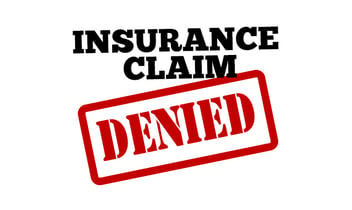You have insurance to cover losses for any damage to your home, and since you have paid your premium faithfully for years, when something does go wrong, you assume you should be covered. It is expected that an insurance company will process your claim fairly and in good faith.
Unfortunately, some insurance companies want to pay out as little as possible to their policyholders, and sometimes they may fail to conduct a thorough investigation, use deceptive practices, make ridiculous demands about proof of loss, deliberately misinterpret the policy language or records, or use unreasonable delays to avoid resolving a claim. Since none of these are fair or done in good faith, they are considered to be bad faith.
The exact definition of bad faith varies from state to state, with some states defining it as without proper cause or unreasonable, while others have a narrower definition of the term, some consider bad faith a tort, while others see it as a breach of contract.
Proving Bad Faith
In order to prove that your insurance company acted in bad faith, there are typically two things you need to prove.
The first is you must prove benefits were withheld, establishing that your claim is valid. You will need to provide documentation to prove that your claim was denied.
The second thing that you will need to prove is that the reason your insurance company withheld your benefits was unreasonable. You need to show that they did not act objectively based on the facts of your situation when the decision was made.
What Constitutes Bad Faith
Keep in mind that if your insurance company simply made a mistake on your claim, that does not constitute as bad faith. If they ignore the mistake when you approach them about it, then you might be leaning toward bad faith.
Some things considered bad faith include:
- Looking only for evidence to support their basis for denying your claim without looking at evidence that supports your claim.
- Failing to respond to your claim promptly.
- Not providing an adequate explanation for denying or only partially covering a claim.
- Not paying for a covered claim because they did not conduct a proper investigation into the damages
- Making a payment without including a statement to indicate what the payment is covering.
- Unsubstantiated and unwarranted accusations of arson.
- Wrongful threats not to pay claims.
- Treating you or your representatives as adversaries.
- Not being forthcoming with facts regarding coverage to deny, delay or reduce the amount of the claim.· Changing or altering policy coverage without informing or receiving your consent.
Fighting Bad Faith
If you believe your insurance company has acted in bad faith, you can file a lawsuit against them and take the matter to court. Before you decide to do that though, contacting a public adjuster to examine all of your options is a good idea. Unlike consulting a lawyer, who will push you to sue, a public adjuster can advise you on your situation and work with you to see if there are other alternatives to handling your claim before you begin a lawsuit.




 Storm Damage
Storm Damage  Property Damage
Property Damage Appraisal Services
Appraisal Services Contact Us
Contact Us




.jpg)
 claims@ucspa.com
claims@ucspa.com Mon-Fri: 9:00am-5:00pm
Mon-Fri: 9:00am-5:00pm